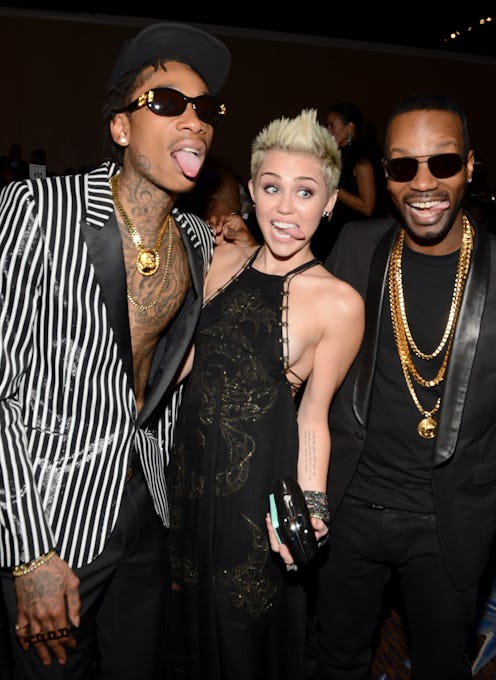Entertainment
The Dilemma of the Guest Rapper
There's not one, but two guest rappers on Miley Cyrus' infamous song "23." But the message is clear: it's Miley's party, everyone else is just watching. Guest rappers aren't a new trend in pop music, but they're increasing in popularity. Big-name rappers will be delegated to a few bars on the latest top 40 radio tune for a good bit of money and some mainstream exposure. Although hip-hop has slowly been fused into mainstream pop, it's still a big antagonist as far as popular music goes. It's aggressive, it's misogynistic, it's not typically made by white people. There are still those kinds of people who like "every kind of music except rap."
And there's a lot more of them than you think. There's a great article by Brandon Soderberg over at SPIN that explores how pop music is much whiter today than it was in 2003. Soderberg argues that a big part of that is a result of the whitewashing of rap and R&B radio. But another, potentially more important element in the whitewashing of pop music is guest rappers facilitating the way rap was absorbed into pop music.
Guest rappers in pop music are typically already big names: Whiz Khalifa guested on a Maroon 5 song, Snoop Dogg and Kanye West have both been featured in Katy Perry songs, Whiz Khalifa and Juicy J are the huge names that appear on Cyrus' "23." It's a practice that's not reciprocated in the same kind of way — guest spots by pop singers on rap songs are few and far between, and when they do happen, they're usually much lesser-known artists. It's easy to see why the guest rap verse gained so much traction in the music industry: it potentially widens the audience for both parties involved. But more often than not, guesting on the track becomes a one-way street.
It may have created a bigger audience for rappers, but it puts them on the sidelines, making them the Robin to pop music's Batman. It's pop artists who get the bulk of the credit for the musical ideas that rappers bring to a song, emboldening them to take more musical ideas from hip-hop and R&B. It's that kind of thinking that led Robin Thicke to take a hefty amount of cues from Marvin Gaye for "Blurred Lines," and the hip-hop credibility lent to him by Pharrell and T.I. helped make it an even bigger crossover hit.
It's not all bad — the exchange between pop and hip-hop has made the pop landscape richer and more interesting (and it's what made "Blurred Lines" a much better song than Thicke's cheesier, older ballads). But it does threaten to replay the same issue that's been replayed over and over again in nearly every type of music: white artists getting credit for music that black artists pioneered and making more off of said music than their black counterparts. Rinse, repeat. It's a grim process, but it's not an unlikely one. You can see it in the reign of someone like Cyrus, who until recently, seemed to have very little knowledge of hip-hop other than that it was what she and her friends listened to in the club.
But rappers will continue to guest star in Miley's pop saga because it means money and access to a bigger audience, and who can blame them, really? But what they might not realize is the threat of obsolescence, of being slowly turned into accessories of cool and tokens of hip-hop credibility.
